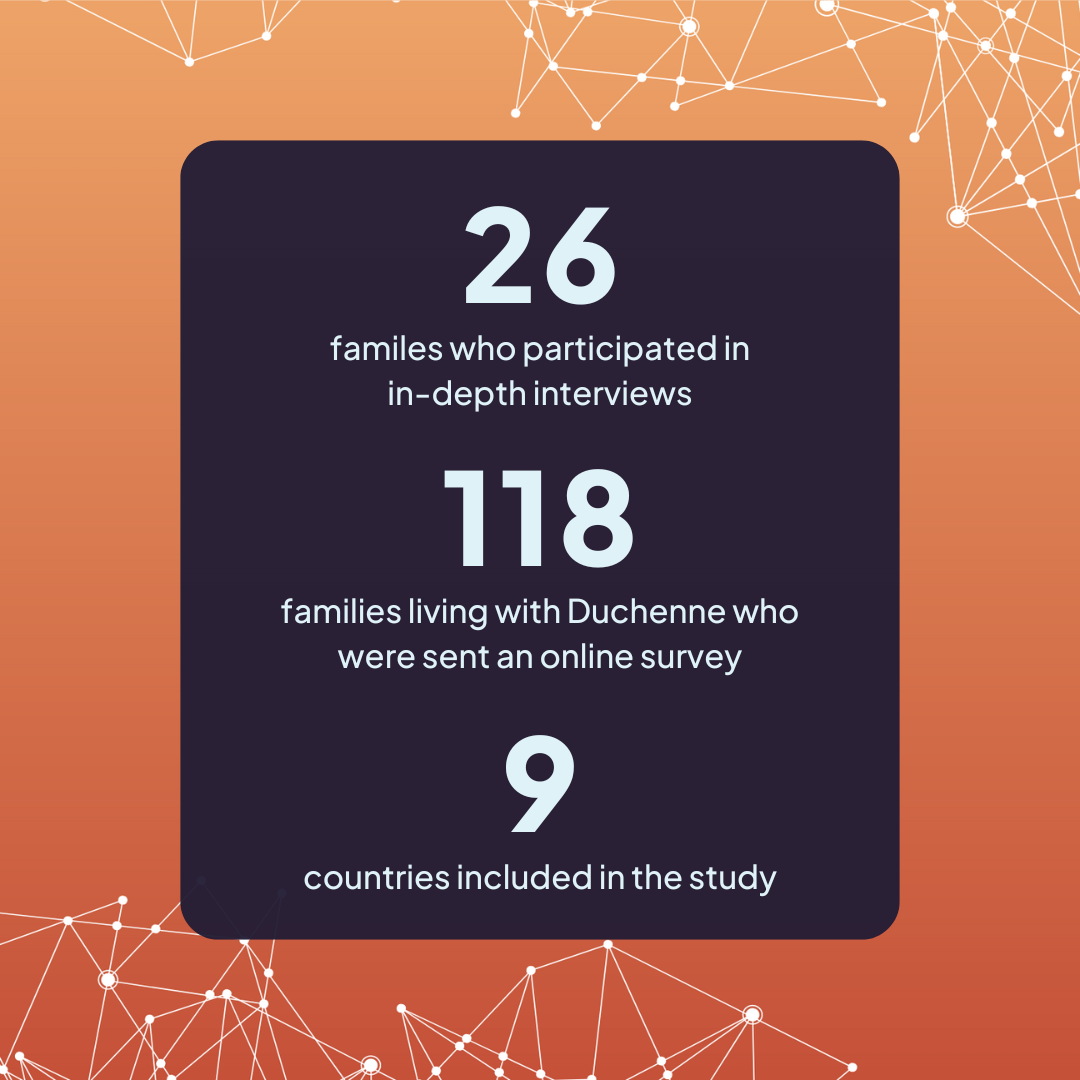
PTC research highlights opportunities to improve the transition experience for young adults living with Duchenne
In 2023, PTC supported a research project conducted by a patient-focused consultancy Redline Strategic exploring the experience for teenagers, young adults and caregivers living with Duchenne muscular dystrophy (Duchenne) as they transition from pediatric care to adult care.
The research gathered valuable insights from participants living with Duchenne across nine European countries and highlights opportunities to improve the transition experience for young adults.
Sian O’Neill, Senior Director, Patient Engagement (PE)- EMEA APAC, and Luke Millington, PE Specialist, together with Maureen Mason, Senior Area Business Manager – Ireland, share the learnings and drivers for improving the transition experience for young adults living with Duchenne.
Why was the research conducted?
Sian: Over the past decades, life expectancy of individuals affected by Duchenne has increased significantly, and this in turn creates new challenges and opportunities. As a teenager becomes a young adult, their healthcare needs and personal interests may change. Without proper planning for the future, transition may be a confusing time, and quality of care may be interrupted and impacted as a young adult moves from a pediatric care setting to an adult care setting.
The research project specifically aimed to understand transition experiences and perspectives from young adults living with Duchenne and their caregivers, how they personally think and feel about these changes, barriers they face and needs they have.
What did the research reveal?
Luke: The research uncovered several barriers that can make transition challenging. In most countries, there is no standardized transition process in place, leaving families to figure out the transition journey for themselves. Lack of time, lack of resources and lack of proper planning, as well as the perception of Duchenne itself, can all further impact transition. A lack of mental health support was also highlighted.
Now that the research has been completed, what’s next?
Maureen: The research has provided valuable insights into the barriers and drivers of transition. Through close collaboration with patient organizations, we have enriched our research and identified opportunities to improve the transition experience across countries. These are:
- Tailored education outlining the transition pathway and what to expect
- Encouragement to start future planning and to seek mental health support when needed
- Motivation for young adults living with Duchenne to become more involved with conversations and decisions around their health
Luke: The research has been shared and discussed with the wider Duchenne patient advocacy community. Various initiatives have since been developed by patient groups in countries that are looking to improve the transition process for young adults. One patient group developed a series of webinars in partnership with clinicians to educate young adults and help improve their understanding of the transition process.
We continue to work closely with the Duchenne communities to help co-create solutions. Recently we supported Pathfinders Neuromuscular Alliance in the UK to develop further resources on transition for their community.
How would you describe the impact of this research?
Sian: The goal was to highlight the need to empower young adults to have greater input into their care during and after transition. This research has put patients in focus, aiming to understand the challenges and needs they face. It serves as a catalyst for solution design.
Maureen: It was clear from the research that a collaborative team effort involving young adults, their caregivers and healthcare professionals is required to improve the transition experience for young adults living with Duchenne.
Luke: This initiative has been extremely well received by the Duchenne community. We are very proud to play a part in improving the lives and experiences of people living with Duchenne.
The research has also been presented at the recent BOBIAwards 2024*, where it was a finalist in the ‘Best Patient-Centric Approach’ category.
Download an overview of the research findings [PDF]